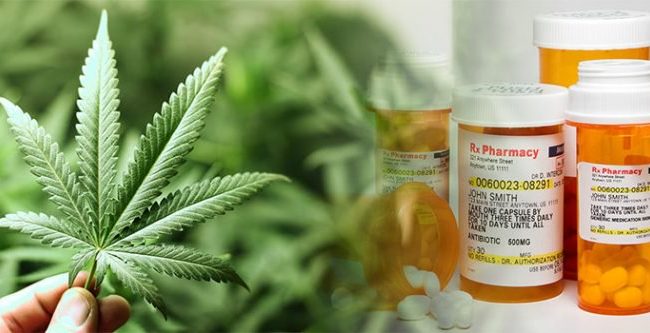Addiction specialist, doctor argue against use
“This was a bad idea from the outset.”
That’s how Richard Vaglienti, a physician with 30 years specializing in pain management, characterized medical cannabis.
Vaglienti was speaking to members of the Monongalia County Board of Health, which previously came under pressure for being the last BOH in the state to approve potential cannabis dispensary location permits.
The board ultimately passed 20 of the 21 potential dispensary locations on to the state in late October. The West Virginia Office of Medical Cannabis will ultimately select the state’s initial 100 dispensary locations.
Even so, the BOH is crafting an ordinance that would go beyond what’s outlined in state code to regulate such facilities.
Vaglienti cheered that effort, as did Jeremy Hustead, an addiction specialist and president of the WV Society of Addiction Medicine.
The two doctors, both of whom work for WVU Medicine, countered two of the popular arguments for medical cannabis — that it is useful in the treatment of pain and will lower opioid overdose rates.
“There is no good clinical data that says THC is good for pain. Even if there was, there is a prescription form of THC that is available now, which is legal and is prescribable by physicians,” Vaglienti said.
Hustead said he believes the push for cannabis is based solely on economic factors, not patient care.
“One of the big reasons we pushed back in 2017 for legalization was the idea that it would reduce overdose rates for opioids. A lot of people were very excited about that prospect. That was one of the big things that was pushed — we can cure the opioid epidemic through marijuana,” Hustead said. “The reality is that’s not true. The research has shown it’s the opposite. It raises overdoses.”
Hustead went on to compare cannabis to alcohol, tobacco and opiates, all of which, he said, were pushed based on the promise of a financial windfall.
“I would love to say cannabis is going to help opioids, because if there was a clear correlation that people stopped overdosing or people used less opioids, I would recommend it to everybody because I’m tired of seeing people die of ODs, but it’s clear that’s not the case,” he said. “Anyone who says otherwise is basing it on old data. It’s selection bias, what they’re focusing on. The truth is, it does not help.”
Monongalia County Commissioner Sean Sikora has also spoken in defense of the efforts to put some regulation in place.
Sikora said Pennsylvania, which passed medical cannabis two years ago, now has a total of 75 dispensaries for 12.8 million people, or about one dispensary for every 171,000 residents. In contrast, West Virginia, a state of 1.8 million people, will start out with 100 dispensaries. That’s approximately one dispensary for every 18,000 residents.
“So how is the state going to be able to manage that? I think it’s legitimate that people ask those questions,” he said.
All told, cannabis is now legal for adults in 15 states and the District of Columbia. Thirty-six states allow for some form of access for medicinal use.
According to information recently reported by the Associated Press, estimates indicate the legal marijuana market in the U.S. will hit $34 billion in annual sales by 2025.
“The reality is, despite all the things that are said, there’s no mistake about it. The goal is to turn occasional users into heavy users that use for life, because that’s where the most profits lie,” Hustead said.
TWEET @BenConley_DP




